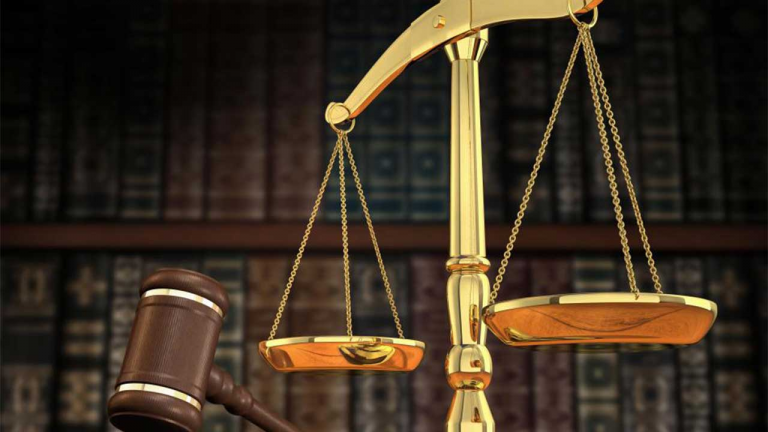
When Nigeria increased the price of electricity, to make it reflective, so that distribution companies will not be rejecting power from generating companies, I reminded the Honourable Minister that he would be lucky if that goes through. Yes, the rascality in the Nigerian judiciary is legendary: people can go to courts and get injunctions on price increases!
Today, it has happened again: “A Federal High Court in Kano has delivered a landmark ruling, issuing a restraining order against the National Electricity Regulatory Commission (NERC) and the Kano Electricity Distribution Company (KEDCO), effectively stalling the implementation of a contentious new electricity tariff targeting Band A consumers.”
Recall that many distribution companies are bankrupt or failing. Why? They are unable to recoup their investments by adjusting prices on their products. Why? Anytime price is changed, someone goes to court to block the increase. It is the same thing we have also seen with DStv and GOtv. Magically, MultiChoice, the owner of DStv and GOtv, has been declaring losses over the last few quarters.
Register for Tekedia Mini-MBA edition 19 (Feb 9 – May 2, 2026): big discounts for early bird.
Tekedia AI in Business Masterclass opens registrations.
Join Tekedia Capital Syndicate and co-invest in great global startups.
Register for Tekedia AI Lab: From Technical Design to Deployment (next edition begins Jan 24 2026).
For the distribution companies, many have collapsed. For Kano Disco, as of the third quarter of 2023, Kano Electricity Distribution Company (Kano Disco) had a recorded loss of 52.48% while Kaduna Disco Board was dissolved over a N110bn debt. From Enugu to Abuja to everywhere, most have gone bankrupt and have been taken over by banks. Check why? They are losing money distributing power, and when they want to increase prices, a court stops them! Imagine if the court can rule against darkness so that we can get LIGHT free in Nigeria.
Yet, the generating companies which are paid by NBET with revenue guaranteed are doing very well; they represent some of the largest companies in the Nigerian stock exchange. But the downstream discos which pipe the electricity to homes are dying or dead. So, we have electricity but we cannot use them. What a nation.
When Nigeria increased the price of electricity, to make it reflective, so that distribution companies will not be rejecting power from generating companies, I reminded the Honourable Minister that he would be lucky if that goes through. Yes, the rascality in the Nigerian… pic.twitter.com/PSdkxHYl60
— Ndubuisi Ekekwe (@ndekekwe) May 4, 2024
Comment on Feed: I am sorry to say this, price is not the major problem of e-DISCOs (Electricity Distribution Companies in Nigeria).
Two things drive value for any business, Volume and Price.
Only about 50%-60% of volume of electricity are billed by DISCOs.
Of those billed, they have roughly recovery rate of between 55% to 65%
Imagine a DISCO having over N267Billion as receivable, it shocks you, that is a fact.
Also, the electricity generating companies (GENCO) collect their incomes fully and most DISCOs can not fulfil their obligations to GENCO, the government foot the balance bill to GENCO. You now understand why people people like Femi Otedola opted for GENCO, less stressful compared to DISCO.
If DISCO can fully recover the electricity distributed to consumers, the issue of price won’t come up for now. Increasing price is just putting additional burden on those existing loyal consumers who are paying their bills regularly.
Recently, I saw a video of a town in Osun State where the indigenes were saying the palace or the King should not be made to pay for electricity, it is more than that.
Comment 2: To be honest, in markets where pure competition is or can be hindered, it is typical of the state to intervene in price determination. DSTv is a monopoly in the satellite TV market. Discos have regional monopoly in the electricity market. In both cases, if you allow them to determine prices, consumers would definitely suffer. We saw a semblance of that in international flights before Air Peace stepped in.
Even the Telecom sector in Nigeria today is oligopolistic in structure. Allowed, they would collude!
Therefore, it is important in these unique sectors that all stakeholders be brought to the table to discuss price adjustments following due process or in accordance with the laws. This is currently underway in the Telecom sector. In many cases, it is usually the ground for litigation – that due process was not followed. If the increase in Tariff is consistent with the law, those going to the courts, so so in vain.
However, for me, I think litigation efforts should be concentrated on ensuring that the Discos do not charge Band A tariff but supply Band B electricity, and so on. This would be exploitative.
---
Connect via my
LinkedIn |
Facebook |
X |
TikTok |
Instagram |
YouTube



